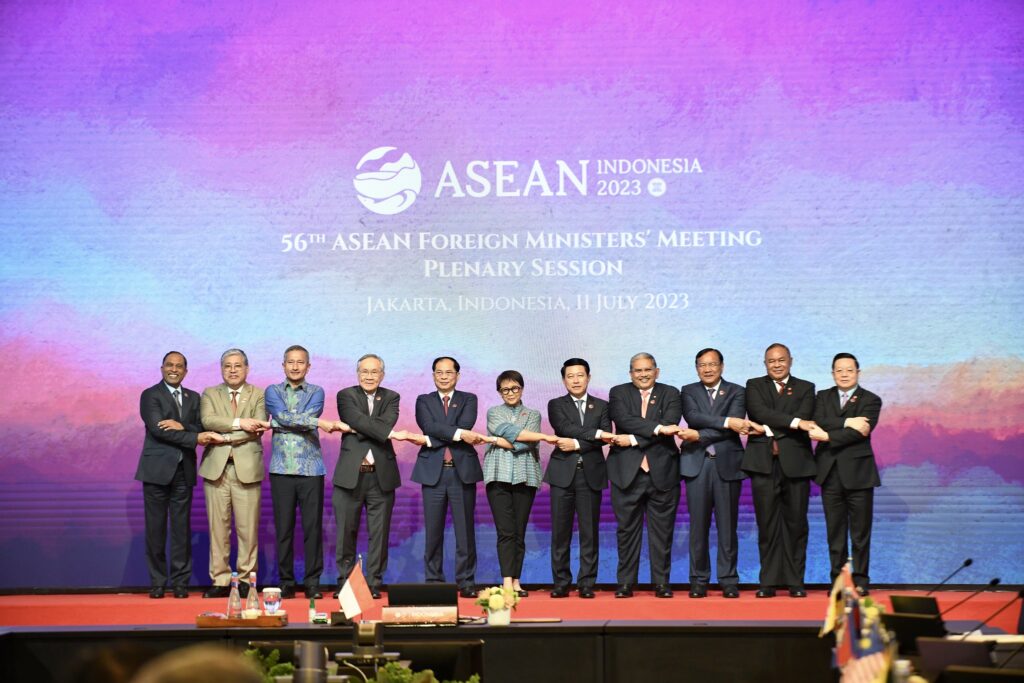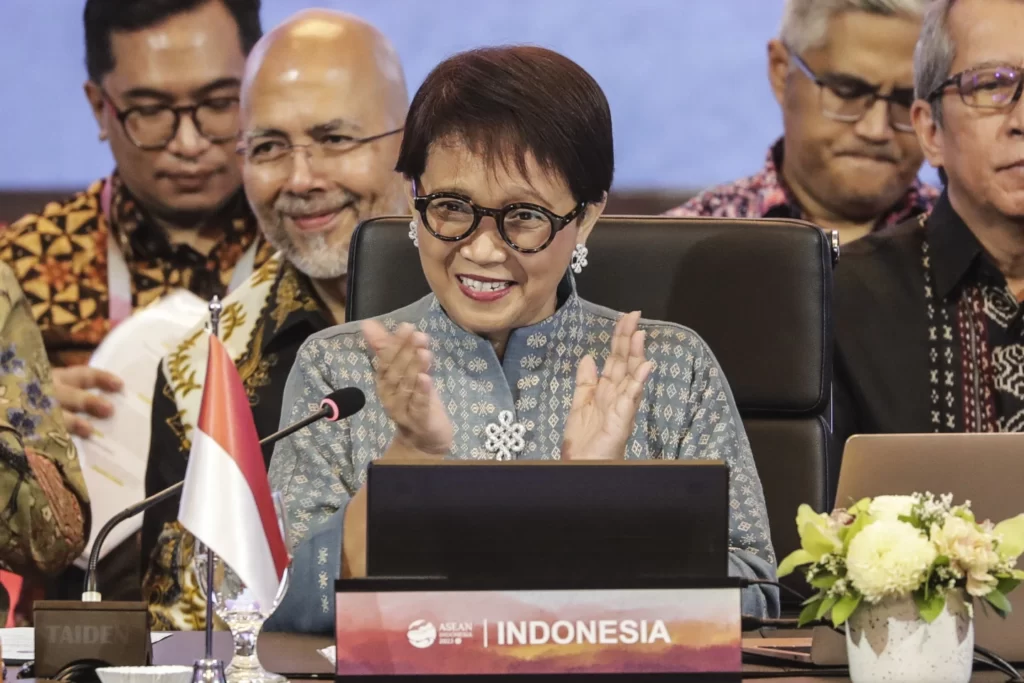
Jakarta, Indonesia – Top Southeast Asian diplomats gathered in Jakarta for the 56th ASEAN Foreign Ministers’ Meeting (56th AMM) on July 12, 2023. During the two-day summit, many discussions took place, opening with the violent conflict in Myanmar, followed by the escalating US-Chinese tensions in the South China Sea (SCS).
As the military tension in the SCS continues to intensify, the threat over the use of nuclear-based weapons also rises, raising serious concerns that Southeast Asia is “one miscalculation away from apocalypse”, as stated by Indonesian Foreign Minister Retno Marsudi.
Notably, after the establishment of Australia, the United Kingdom, and the United States (AUKUS) security partnership, the three nations assisted Australia in building a nuclear-powered submarine to be deployed in the disputed waters to deter China. Being at the edge of the South China Sea, key ASEAN states Indonesia and Malaysia have opposed the trilateral pact, fearing it might trigger a nuclear arms race in the region.

“Southeast Asia is still not a truly safe region as long as there are countries that have nuclear weapons,” emphasized the Indonesian foreign minister.
In this regard, the ASEAN foreign ministers reaffirmed their call for nuclear-weapon states (NWS) to sign and ratify the Southeast Asia Nuclear-Weapon-Free Zone (SEANWFZ) Protocol. This treaty, also known as the 1995 Bangkok Treaty, was established as a declaration to preserve Southeast Asia as a nuclear-free zone. It imposes a legal obligation on state parties not to “develop, manufacture or otherwise acquire, possess or have control over nuclear weapons, station or transport nuclear weapons, or test or use nuclear weapons.”
While all ASEAN member states have signed and ratified the agreement, no NWS have shown their good faith to ratify the treaty – merely making reservations to several provisions of the treaty. This is because the five NWS consisting of China, Russia, France, the United Kingdom, and the United States disagree with several points in the treaty’s protocol.
Therefore, after a decade of failed ratification negotiations, it was decided at the 2022 ASEAN Summit to allow NWS to partially sign the SEANWFZ Treaty. This decision is regarded as a significant step since it offers a new foundation to continue negotiations that have been suspended for a decade.
Director General for ASEAN Cooperation Sidharto R. Suryodipuro stated that ASEAN foreign ministers will meet with the five nuclear weapon states at the East Asia Summit and regional forums later this year to urge them to sign and ratify the 1995 Bangkok Treaty.